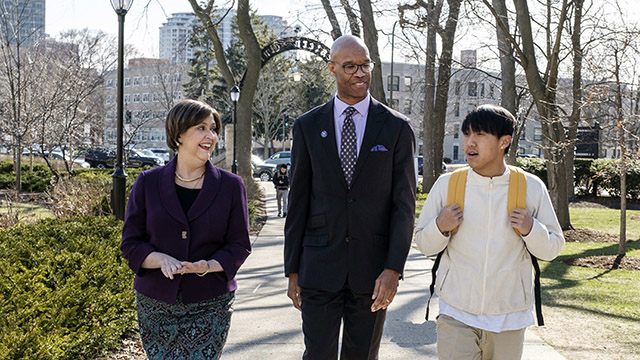What does it mean to be first in the family to graduate from college? For many, being first-generation is a point of pride. It’s associated with changing the landscape of opportunity and leadership in this country.
First-generation students are attending college now more than ever before. At Northwestern, approximately 10 percent of the undergraduate population identifies as first-gen.
This week, Northwestern launches “I'm First” to celebrate the strengths and perspectives first-generation students, faculty and staff bring to campus. The “I’m First” initiative includes swag (show your pride on your shirt), a digital directory (connect with first-gen peers) and social media spotlights called First-Gen Fridays (check out Facebook).
Related: Check out next week’s I'm First events.
Kourtney Cockrell, director of Student Enrichment Services, explains more about the first-gen experience at Northwestern.
Why should we celebrate first-gen students?
We’re celebrating Northwestern's first-generation students for their resilience, tenacity and ambition. These students bring vital perspective to campus, leading us to rethink assumptions and privileges that are so often taken for granted. For example, leveraging networks for lucrative summer internships, accessing resources such as office hours and fellowships or simply paying for books and school supplies without having to work part-time.
What strengths do first-generation students bring to Northwestern?
These students bring innate leadership skills, resourcefulness and incredible gratitude for opportunities that were inaccessible for many in their family and communities. And with that, they've come here to compete at the highest academic levels despite often missing out on the kind of support typically enjoyed by peers whose family and friends attended college before them.
How can we all lend support?
Help make Northwestern a more inclusive campus for all students, particularly our community of first-gen students, staff, and faculty by participating in workshops and programs that encourage dialogue across lines of difference. Staff and faculty can apply for ChangeMakers through the Women’s Center. The deadline is May 11. Students can participate in Sustained Dialogue (SD) through Social Justice Education, an office within Campus Inclusion and Community.


